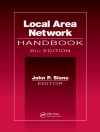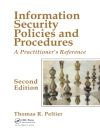This Springer Brief covers emerging maritime wideband communication networks and how they facilitate applications such as maritime distress, urgency, safety and general communications. It provides valuable insight on the data transmission scheduling and protocol design for the maritime wideband network. This brief begins with an introduction to maritime wideband communication networks including the architecture, framework, operations and a comprehensive survey on current developments. The second part of the brief presents the resource allocation and scheduling for video packet transmission with a goal of maximizing the weights of uploaded video packets. Finally, an energy and content aware scheduling scheme is proposed for the most efficient vessel packet throughput. Based on the real ship route traces obtained from the navigation software BLM-Ship, simulation results demonstrate the viability of the proposed schemes. Conclusions and further research directions are discussed. Maritime Wideband Communication Networks: Video Transmission Scheduling is a valuable tool for researchers and professionals working in wireless communications and networks. Advanced-level students studying computer science and electrical engineering will also find the content valuable.
Inhaltsverzeichnis
Introduction.- Background and Literature Survey.- Video Transmission Scheduling in Maritime Wideband Communication Networks.- Green Energy and Content Aware Scheduling in Maritime Wideband Communication Networks.- Conclusions and Future Directions.












